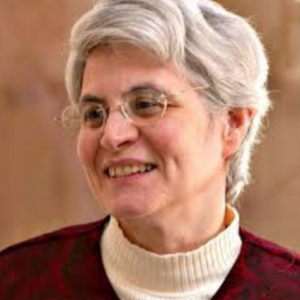February 2nd, 2017 Newsletter

February 2nd, 2017 Newsletter
February 2, 2017
Good morning and welcome to agebuzz… Headlining today’s topics:
-Cold Comfort: Staying Warm In The Winter
-Deal Me In: Engaging Your Mind To Stay Sharp
-A Tough Pill To Swallow: Opioids And Seniors
-Jot It Down: How Food Diaries Can Aid Weight Loss For Those Over 50
-What The Doctor Ordered: The Thoughts And Wisdom Of Dr. Muriel Gillick
-Life And Death: Haider Warraich And The Fate Of Modern Death
-The Last Word
Cold Comfort: Staying Warm In The Winter: Despite global warming, there are still plenty of winter days when cold weather can wreak havoc with your health and well being. This is especially so with seniors who are at enhanced risk from the cold, due to health conditions or medications. In fact, a drop in body temperature can be a sign of a serious medical emergency that requires immediate attention. The National Institute on Aging has important advice to keep seniors warm and healthy even as the outdoor temperatures fall below freezing. It’s imperative to learn the signs and symptoms of hypothermia and what actions can be taken to prevent serious physical harm. So stay safe, stay warm and Read Here.
Deal Me In: Engaging Your Mind To Stay Sharp: Playing a game of cards or even an online computer game is something many of us regularly enjoy. And now we have scientific evidence that such leisure activities are good for cognition as well. In a new study published in JAMA Neurology,researchers followed almost 2000 people over age 70 for four years. They found that even when taken up later in life, activities such as crafts, card playing, computer use or game playing are all associated with a significant decrease in the risk of mild cognitive impairment. So deal those cards, and Read Here.
A Tough Pill To Swallow: Opioids And Seniors: No one can deny the devastating effects that opioid abuse has taken on thousands of young people and communities across our country. No doubt too many people are using narcotics in ways never intended for these medications. The question is, how to determine an appropriate use of such drugs and when are they right to prescribe? This is an especially tricky balance for older adults whose pain and suffering often drastically curtail their independence and quality of life. If the right dosage of a pain medication can keep an older patient functioning in the community, shouldn’t that patient have access to the drug? That is a balancing act that geriatricians struggle with- and the answer very much depends on the circumstances of the senior and the training of the physician. Kaiser Health News has a new piece on this prescribing dilemma. Read It Here.
Jot It Down: How Food Diaries Can Aid Weight Loss For Those Over 50: For some of us, we never remember anything unless we write it down. It turns out, in the battle for weight loss, keeping a food diary is an excellent tool to help understand what and how you are eating, and to reconsider your choices. Writing on the website Next Avenue, certified trainer and health coach Rashelle Brown spells out the benefits to be gained by utilizing a food log to track what you are eating and why. In fact, there is scientific data to demonstrate the value of food diaries for long term weight loss. And for those of you who are tech savvy, there are plenty of apps to help you monitor your dietary intake. So whether it’s by pen and paper, or by clicking a keyboard, keep track of your foods and Read Here.
What The Doctor Ordered: The Thoughts And Wisdom Of Dr. Muriel Gillick: No doubt you’ve heard us expound on the benefits of seeking out a geriatrician for senior health care. Turns out those benefits can be accessed beyond the exam room. Dr. Muriel Gillick is a renowned physician and Professor of Population Health at Harvard. She has spent decades studying and caring for older patients, and she has a lifetime of professional and personal wisdom to share. Best of all, it’s available to you on her blog, Life In The End Zone. Dr. Gillick shares advice about topics as wide-ranging as nursing homes to advance care planning to health insurance. In this week’s blog entry, she writes about the phenomena of the long lives of Holocaust survivors and why they often live longer than would be expected. Her writing is warm, engaging and enlightening. Check out Dr. Gillick’s writing and wisdom Here.
Life And Death: Haider Warraich And The Fate Of Modern Death: Sometimes it takes a young person to teach his elders the wisdom of life…and death. Haider Warraich is a 29-year-old cardiology fellow practicing medicine at Duke University. He’s also a writer, and he’s just come out with his first book, Modern Death. In this well-reviewed new volume, Warraich writes about the circumstances of death and dying throughout the ages, and how modern medicine has upended traditional practices, not always for the better. Speaking with Terry Gross on her radio show Fresh Air, Warraich describes how we fail so many dying patients when we overwhelm them with modern technology. And if you want further proof of the complexities of modern end-of-life care, consider the excellent new Netflix documentary, Extremis, which was just nominated for an Academy Award for Best Documentary, Short Subject. Listen to Terry Gross interview Haider Warraich Here and watch the trailer for Extremis Here.
THE LAST WORD: “When you come to the end of your rope, tie a knot and hang on.” Franklin Delano Roosevelt







